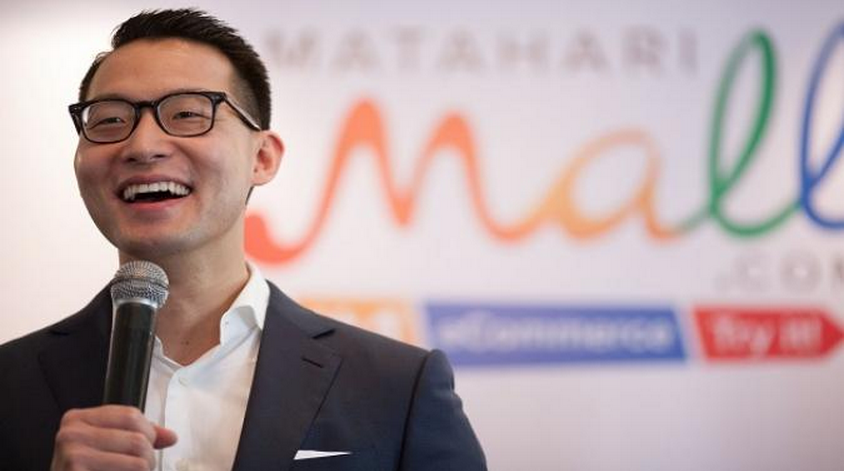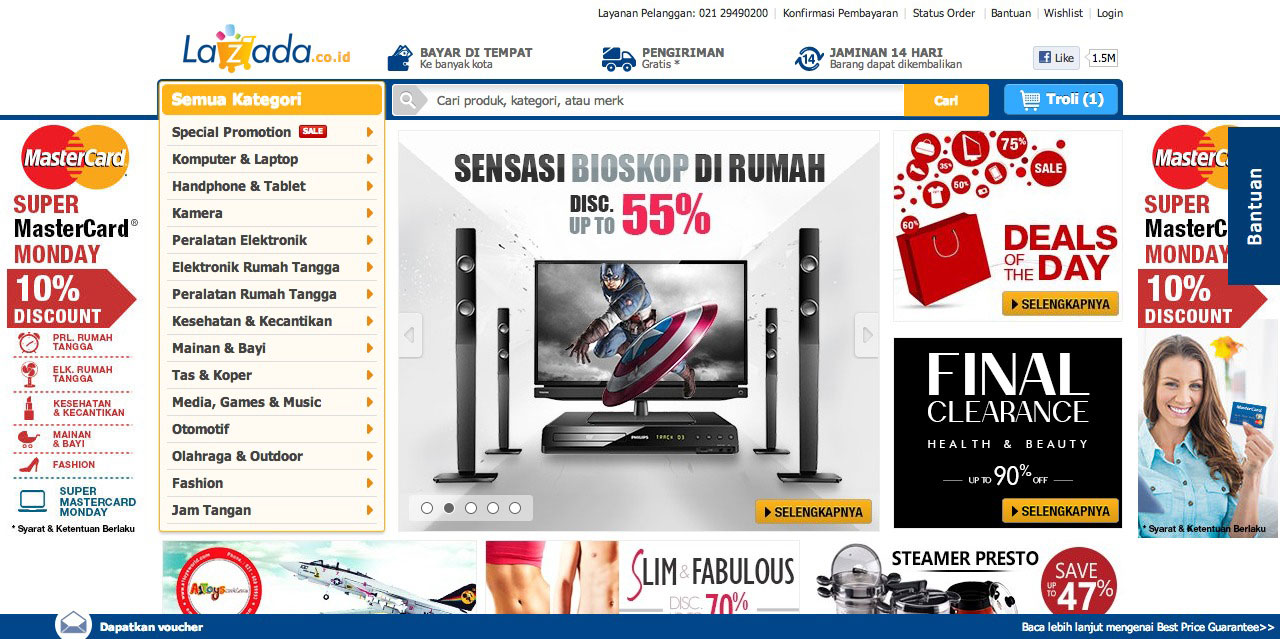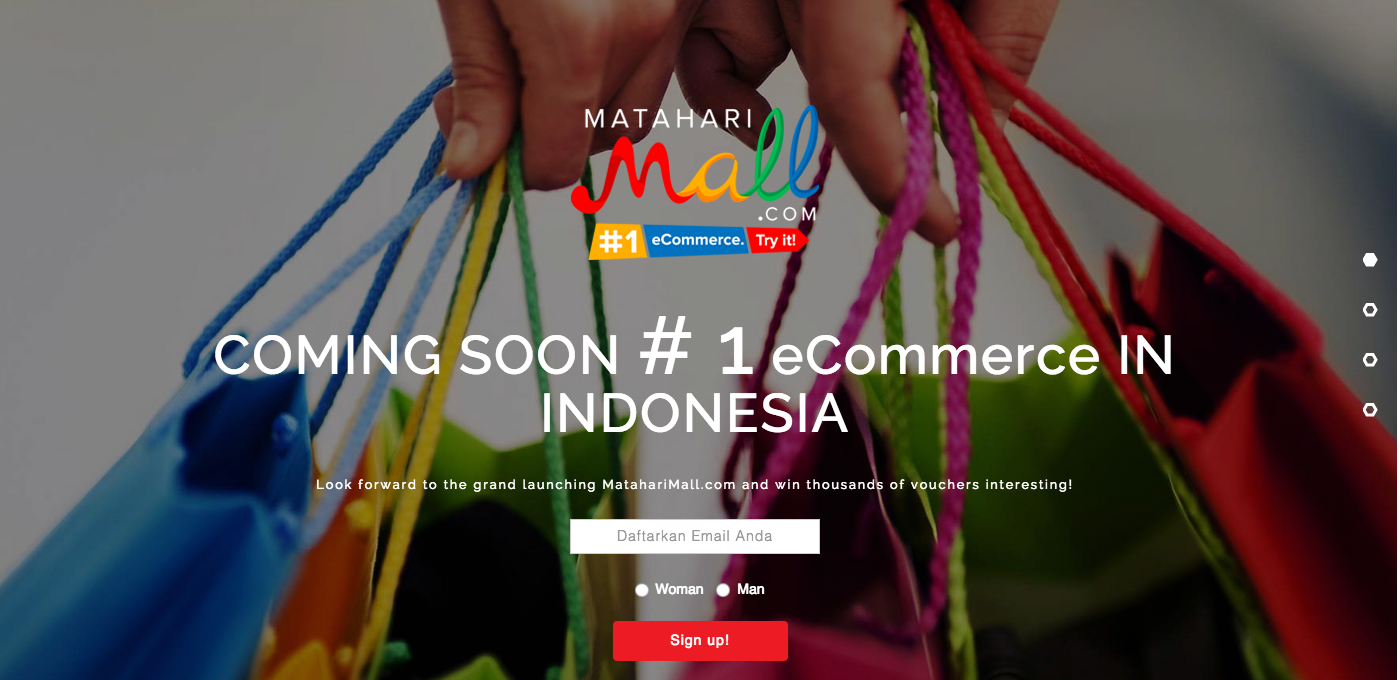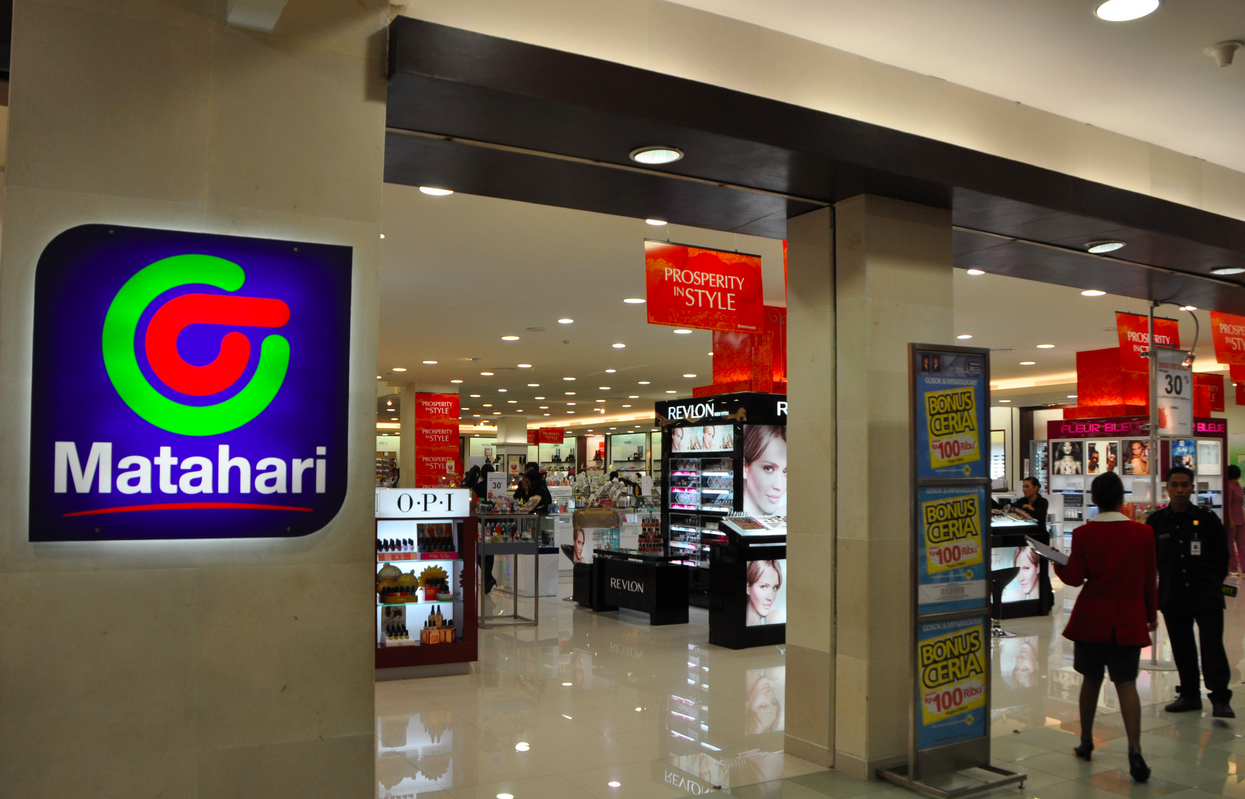This is MatahariMall’s gameplan to beat Rocket Internet

Lippo Group representative John Riady.
Last month, Indonesia’s Lippo Group put US$500 million into MatahariMall in hopes of building the business-to-consumer site that would eventually become the “Alibaba of Indonesia” – in the words of the firm’s public relations.
As the grandson of Lippo Group’s founder Mochtar Riady, John Riady is a high-profile figure in Indonesia’s business and media scene. He was a teenager during the fall of Suharto, the former dictator who presided over three decades of a corrupt and brutal regime. With an early interest in politics, Riady attended Georgetown University in the US, where he studied political philosophy and economics before returning to Indonesia to build the local English language media outlets GlobeAsia magazine and The Jakarta Globe newspaper. He later purchased Investor Daily Indonesia. But according to Riady, there is “no money to be made in media” these days, which is why he’s now shifting his focus toward ecommerce.
The investment was one of the largest on public record to go into an Indonesian ecommerce site. However, it’s important to note that MatahariMall is not really a startup – in the pure sense of the word – but rather a corporate venture. So it’s not accurate to say that the investment was the largest for a local tech startup. Homegrown consumer-to-consumer marketplace Tokopedia can still claim that title with US$100 million from Sequoia Capital and SoftBank.
Lazada isn’t a pushover
Riady says boldly that his firm is not intimidated by Rocket Internet, arguably the most aggressive tech startup player in Southeast Asia.Rocket Internet’s Lazada Indonesia – which is likely the largest business-to-consumer ecommerce site serving the archipelago today – will now have an even larger capacity than ever to rake in the sales. Lazada Group’s CEO Maximillian Bittner just announced this week that Lazada would absorb the resources and personnel of Rocket’s consumer-to-consumer site Lamido. Earlier this week, we reported that Lazada Group has received US$686 million in funding, and is currently valued at US$1.25 billion. But with deep pockets of his own and hands in many local pies, Riady doesn’t seem to care one way or another.
“I don’t know what Lazada is doing. That doesn’t drive our strategy,” says Riady. “We’ve got a larger budget than them and we’ve got a better team […] They’re focused on nine different countries. We’re focused only on Indonesia. We’ve been selling to the Indonesian consumer for the last 40 years. We know exactly what they want, what they’ll buy, and at what price points.”

Riady claims that even prior to his site going live, which he says won’t happen until later this month, MatahariMall has been able to gather more types of items listed for sale (SKUs) than any other ecommerce company in Indonesia. “On the sourcing side, we’ve been overwhelmed with the amount of merchants who want to sign up to our platform,” says Riady. “We signed as many merchants within one week as it took other players to do in nine to 12 months.”
However, it’s important to note that when speaking about ecommerce, more than one SKU listing can exist for the same product on a platform if that product is offered by more than one vendor. For example, if both Hartono and another electronics store had iPad Air listings on MatahariMall, then that could count as two SKUs. Having said that, a high number of SKUs for a business-to-consumer site prior to launch can help give one an idea of scale, as well as how many partners Lippo Group really has.
Riady is not bashful to credit this the high number of SKUs to Lippo Group’s ownership of Matahari department store and Hypermart, as well as the conglomerate’s long-standing partnerships with other big businesses in the archipelago.
Riady says he’s not in a position to disclose the lineup of MatahariMall’s team. However, he assures Tech in Asia that there a number of “superstars,” whose names will be made public soon. We do know that Singapore’s Yiping Goh, CEO of All Deals Asia, is on the team as a founding member and head of product and technology.
The idea of MatahariMall having an elite, albeit secret team is compelling for several reasons. The main one is that some sources have alleged that Lippo recently approached local ecommerce players and offered to double their salaries if they jump ship and join MatahariMall. To this, Riady simply shrugs them off as speculation. He says:
This is a very small world, right. It’s never been about ‘here, let me double your salary, come join us!’ It’s always been about a vision of truly building the largest Indonesian ecommerce company. […] Of course all of our employees do well […] but it’s never been about doubling salaries.

Online-to-offline could be the right alchemy
Perhaps the most compelling argument for why MatahariMall could potentially take Indonesia by storm over Lazada Indonesia is that it’s one of the only ecommerce players offering online-to-offline (O2O) service. Similar to what Walmart did in the US a few years ago, consumers can buy from MatahariMall’s website, then simply walk into a Matahari department store and pick up or return their goods.Riady didn’t mention the other brick-and-mortar stores that will be accessible via MatahariMall’s O2O feature, but even if the site limits the service to 138 Matahari department stores and the nation’s Hypermart locations, the implications would still be significant. According to him, when the site goes live in a couple weeks, every city in Indonesia with a population of more than 500,000 – apparently where Matahari stores are located – will be able to use the O2O feature.

Despite MatahariMall having some of the deepest coffers in Southeast Asia and the ability to conjure up entire departments at will, last week Lippo also announced that it had selected aCommerce to handle the company’s fulfillment and online marketing, while also acting as a consultant for the venture’s in-house operations.
Having bypassed the consumer-to-consumer stage that other local players like Tokopedia and Bukalapak still operate in, Riady says the future of MatahariMall will be to open up business-to-business options, and also get into grocery ecommerce. For groceries, however, it will also have to compete with sites like HappyFresh, a grocery delivery startup which employs personal shoppers and launched earlier this week in both Jakarta and Kuala Lumpur.
However, Riady remains optimistic that he can corner the local online retail market. “Ecommerce and retail is a very local game,” says Riady. “If you take a look at every other country, the winner is a local player. I don’t think there is any other team out there in Indonesia who can execute a better ecommerce strategy than we can.”






0 komentar:
Posting Komentar